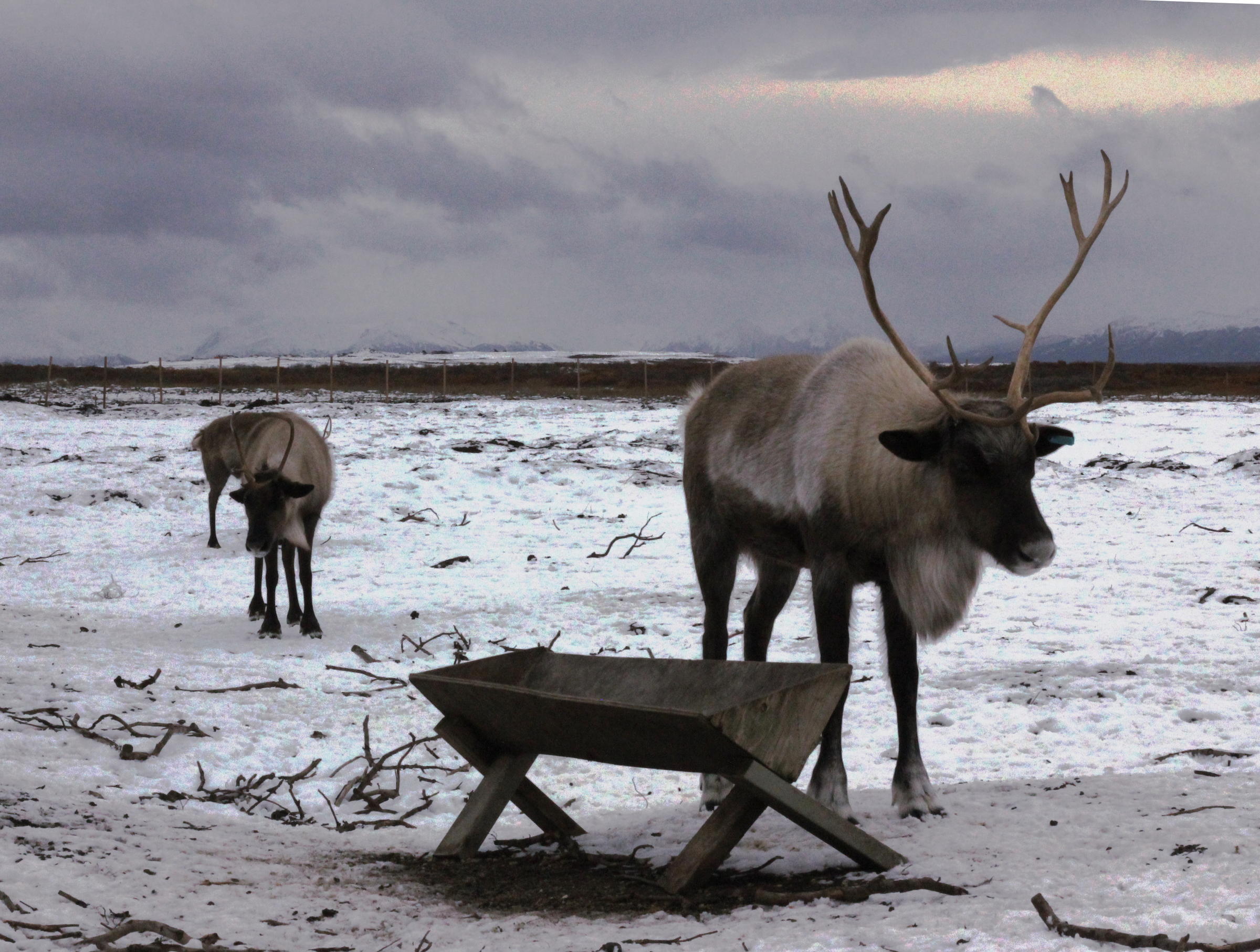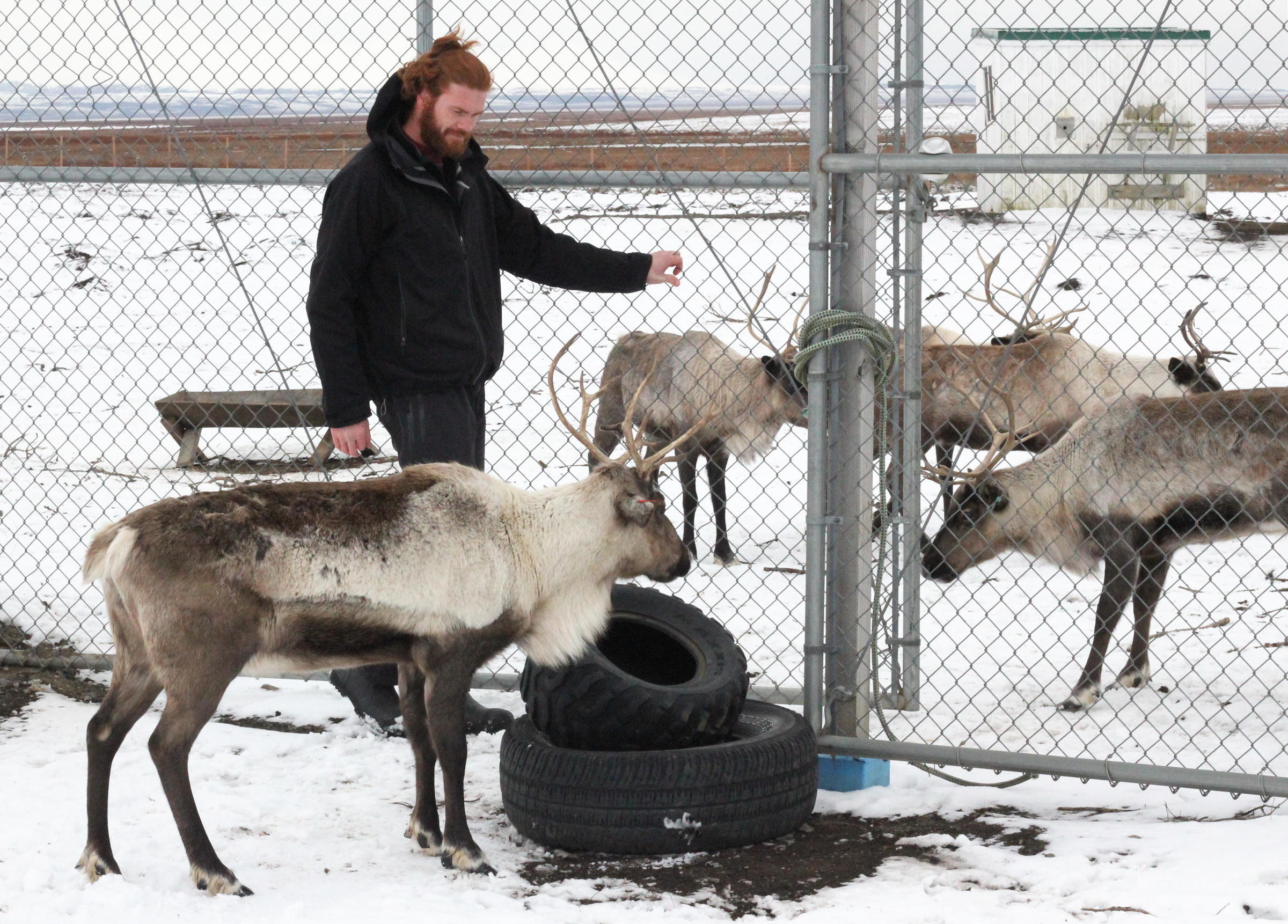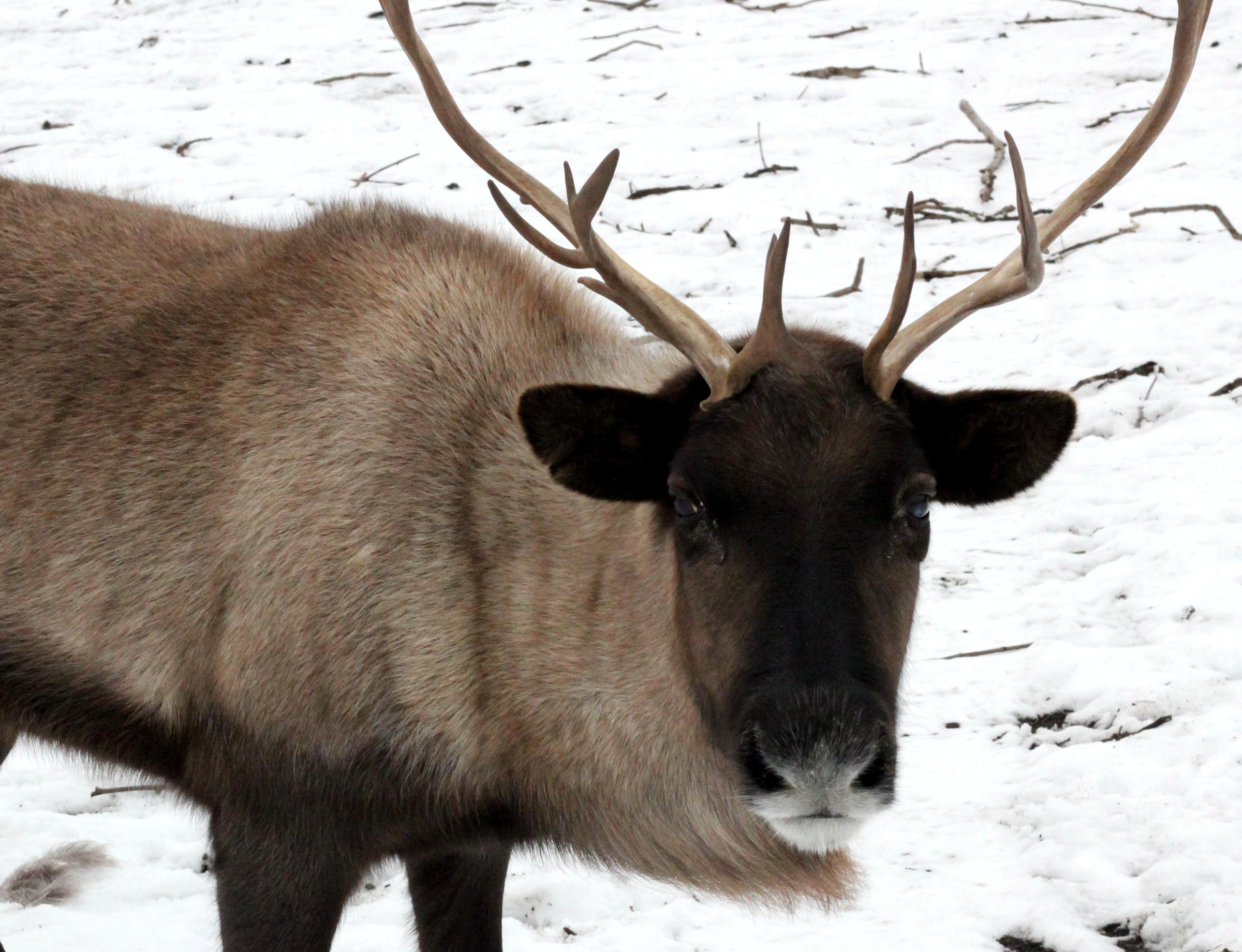
The only sounds in the reindeer paddock were the gusty wind blowing across the tundra and the light click of hooves. The reindeer, slightly smaller than their wild caribou cousins, trotted silently toward the door of their pen. The pen is about the size of a football field and bounded by a tall electric fence. Jake Carlson, 19, walked quietly behind the animals, herding them onto the tundra where they would graze for a few hours.
“You can see they’re calm,” Carlson said. “I just walk them. Some of the other people who work here like to use the bikes to get them in, but they usually listen to what I want them to do.”
Carlson works for the village as a farmer, putting in four or five hours a day, seven days a week. In addition to the reindeer, he takes care of pigs, chickens, rabbits and a cow. His job is the primary one the farm provides. A handful of other Port Heiden residents pick up hourly work taking care of the animals, and a few committed volunteers keep the place operational.

(Avery Lill/ KDLG)
The purpose of the farm is two-fold: to provide fresh food and economic infrastructure for the community. Life in Bristol Bay’s villages is expensive. For Port Heiden residents, a gallon of shelf stable milk costs more than $20. Fresh milk is not available because it would take too long to ship. But they are working on improving their access to fresh foods by producing their own.
“The farm is one piece in our economic loop that we’re building,” Adrianne Christensen, the Native Village of Port Heiden’s director of business development, said. “We would like to be a sustainable village on our own and to be able to keep those dollars and jobs in our community. We have only 100 people. So if one person is employed, that’s one percent of our community more that has a job.”
The Alaska Peninsula has a rich history of animal husbandry. Reindeer herding was a popular trade in the area, beginning the early 1900s. But reindeer herding fell by the wayside with the rise of commercial fishing. Reindeer herding was over for Port Heiden by the 1950s. That is, until 29 reindeer were unloaded from charter planes in 2015.
The village decided to re-establish the tradition after wild caribou on the peninsula declined sharply in the 1990s and early 2000s. Hunting was banned from 2005 to 2015. The caribou on the peninsula have now recovered enough for some hunting, but it is strictly limited.
“We missed eating good food. We were having to order beef, pork and chicken. It’s not good for our bodies, and we don’t particularly like it. So we were sitting around one day, really, really hungry and we thought, well, we should become reindeer farmers, and so we did,” Christensen said.
The herders have been learning as they go. Randy Striker got Port Heiden shortly after the reindeer did. As a part of World Wide Opportunities on Organic Farms, he helps on the farm in return for room and board.
“The hardest part was probably in the beginning because I’d let them out and chase them around for eight hours, all over the place. But then after the first month or so, we got it down to where they were used to us and it’s become really easy. We can walk right beside them,” Striker said.

Right now, the main hurdle is growing the reindeer population. The village will not harvest them for meat until the herd is about 100 strong. The birth rate is good, but bears and wolves have attacked the herd on several occasions.
“We really do our best to keep them safe, but sometimes nature is more strong than electric fences,” Christensen said.
Right now the herd is stable with about 30 animals. In the meantime, their rabbits, chickens and pigs are supplying the fresh food the village craved.
At this point, the farm is not making money. It is funded primarily through donations and grants from organizations, including the Bristol Bay Economic Development Corporation and First Nations Development Institute. But the village is committed to seeing the project through.
While the reindeer graze on the tundra during the day, elders keep an eye out for predators. Children pick fireweed during the summer to put away as feed for the winter. Together, the community is working to re-establish a sustainable food source and jobs to keep people and money in Port Heiden.




